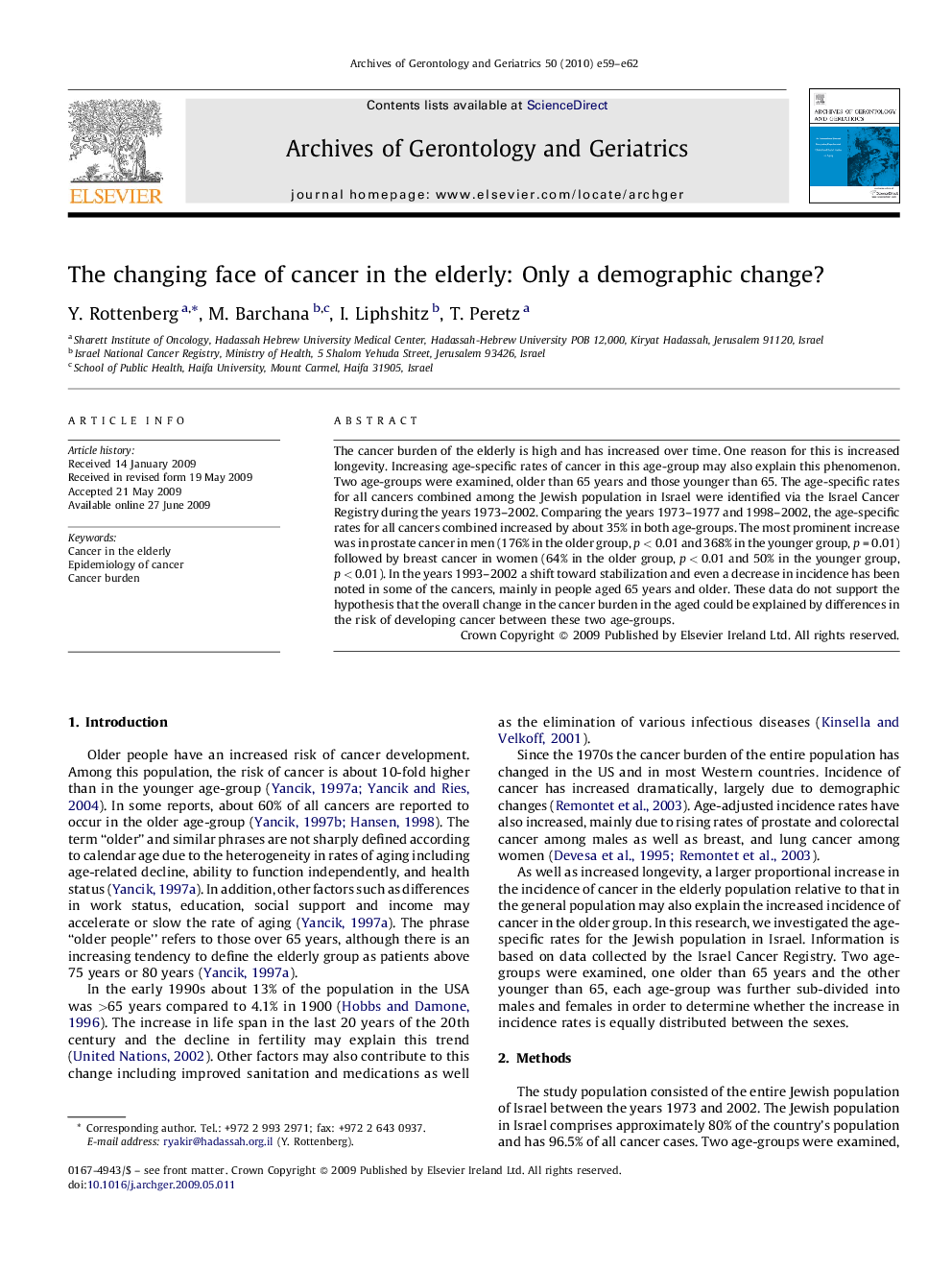| Article ID | Journal | Published Year | Pages | File Type |
|---|---|---|---|---|
| 1903384 | Archives of Gerontology and Geriatrics | 2010 | 4 Pages |
Abstract
The cancer burden of the elderly is high and has increased over time. One reason for this is increased longevity. Increasing age-specific rates of cancer in this age-group may also explain this phenomenon. Two age-groups were examined, older than 65 years and those younger than 65. The age-specific rates for all cancers combined among the Jewish population in Israel were identified via the Israel Cancer Registry during the years 1973-2002. Comparing the years 1973-1977 and 1998-2002, the age-specific rates for all cancers combined increased by about 35% in both age-groups. The most prominent increase was in prostate cancer in men (176% in the older group, p < 0.01 and 368% in the younger group, p = 0.01) followed by breast cancer in women (64% in the older group, p < 0.01 and 50% in the younger group, p < 0.01). In the years 1993-2002 a shift toward stabilization and even a decrease in incidence has been noted in some of the cancers, mainly in people aged 65 years and older. These data do not support the hypothesis that the overall change in the cancer burden in the aged could be explained by differences in the risk of developing cancer between these two age-groups.
Keywords
Related Topics
Life Sciences
Biochemistry, Genetics and Molecular Biology
Ageing
Authors
Y. Rottenberg, M. Barchana, I. Liphshitz, T. Peretz,
